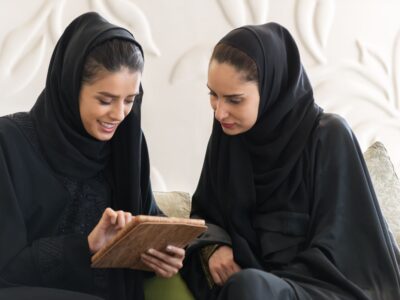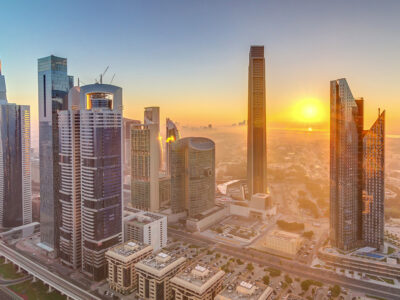Over the past 12 months, the Kingdom of Saudi Arabia (KSA) has witnessed a remarkable surge in construction projects, marking a transformative period for the nation’s infrastructure and economy.
From skyscrapers to sprawling urban developments, these projects are not only reshaping the physical landscape but also promising a host of benefits that will have a lasting impact on the fabric of KSA.
Mega-cities like NEOM and The Red Sea Project are reshaping the concept of urban living, while expansive transportation networks like the Riyadh Metro and the jaw-dropping Red Sea International Airport (RSI) are enhancing connectivity, both domestically and internationally (albeit, international travellers will have to wait a little longer to touch down at RSI).
There are a number of significant benefits arising from these construction projects, such as:
- Job creation. As new projects break ground, opportunities arise for a diverse range of skills, from architects and engineers to labourers and administrative staff. This surge in employment not only reduces unemployment rates domestically but presents opportunities for those from further afield;
- Improved infrastructure quality. As new roads, bridges, airports, and public facilities emerge, the quality of life for residents and visitors alike improves and boosts KSA’s appeal as a destination for international business and tourism;
- KSA’s ambitious ‘Vision 2030’ is making a substantive contribution to the overall growth and diversification of the economy, creating a more resilient and balanced economy with a move away from a reliance on natural resources. The construction sector is playing a pivotal role in this transformation by creating spaces for business, tourism, entertainment, and technology operators;
- Going green. Many of the construction projects in KSA incorporate cutting-edge sustainable practices and innovative technologies, and all projects must have an Environmental Impact Assessment which covers both environmental and socio-economic issues. From energy-efficient buildings to smart city solutions, these projects not only showcase KSA’s commitment to environmental conservation but also position the country as a hub for innovation in the construction sector; and
- Significant foreign investment and international partnerships. Global companies and investors see the potential in KSA’s rapidly expanding construction market, and the economy more widely, fostering collaboration that extends beyond bricks and mortar. This global engagement contributes to knowledge transfer, cultural exchange and economic growth.
The surge in construction projects over the past months has set KSA on an exciting trajectory of growth and transformation. However, amidst the remarkable growth and transformation, it is important to acknowledge that the sheer scale and complexity of these construction projects will give rise to disputes.
With numerous stakeholders involved, disagreements are not uncommon. Coupled with the ambition of many projects in KSA, and the levels of investment involved, the risk of disputes would seem only to increase.

Disputes over project scope, design changes, unforeseen site conditions, programme and cost overrun, quality standards, adverse events and regulatory compliance all pose significant challenges to any project and can lead to project delay.
Addressing these challenges in a unique legal environment requires a collaborative effort and it is crucial for all stakeholders to establish, from the outset, clear and enforceable contractual agreements (to include identifying the relevant law to be applied), robust project management strategies (to include risk assessment and mitigation plans) and communication protocols to run alongside a well-defined mechanism to provide for the swift resolution of disputes, thus mitigating the adverse impact of delay and cost escalation.
Dispute resolution in KSA has traditionally been heavily reliant on the local judicial system via formal court proceedings and the legal system can present practical and cultural difficulties for organisations and individuals from outside the region:
- Whilst the ‘look and feel’ of the legal system in KSA and the way it is evolving might be familiar to civil lawyers from neighbouring Arab jurisdictions, KSA’s application of the law is often considered markedly different, applying a literal interpretation to the teachings of the Quran;
- KSA has a hybrid system of codified laws and case precedent, to the extent they do not contradict with the basic principles of Islamic Shari’a;
- Construction contracts are subject to the same ‘rules’ and ‘interpretations’ as all contracts (albeit they must comply with the Saudi Building Code);
- There are no specific laws applicable only to construction and engineering works but it is worth noting that part 3 of the newly enacted Civil Transactions Law deals with Incoming Contracts of Work, (known in the neighbouring region as Muqawala contract or contracts of works) and covers a number of aspects relevant to construction contracts;
- All contracts must be prepared in English and Arabic, although the latter will prevail in any dispute regarding interpretation unless expressly agreed otherwise;
- An attempt to impose a limitation period other than that imposed by law, or a contractual time limit (i.e. a Contractor’s claim) must not unfairly prejudice another party. If it does, it will not serve as a defence to a claim otherwise brought ‘out of time’;
- KSA does not (generally) allow a party to recover indirect, consequential or speculative loss, howsoever arising. That can make claims for delay and disruption difficult to package outside of arbitration;
- Public contracts are subject to Government Tenders and Procurement Law 2019, which applies to all projects procured by KSA government authorities, ministries and departments alongside all public institutions and bodies with an independent corporate personality.

As KSA accelerates its commitment to building out these projects, so it has committed to adopting alternative forms of dispute resolution, including expert determination, adjudication and arbitration.
The Saudi Centre for Commercial Arbitration (SCCA) has, in May 2023, overhauled its rules. These revised rules follow a public consultation. With the opportunities being presented in KSA, this attracted much interest.
The result is that the SCCA now provides for the use of modern technology and foreign counsel whilst the revised rules generally seek to adopt the best practices from leading arbitration centres around the world. This is likely to offer a degree of familiarity to those from other jurisdictions.
It follows that the KSA is seemingly well placed to resolve high profile and complex disputes via a set of innovative and forward-thinking rules.










